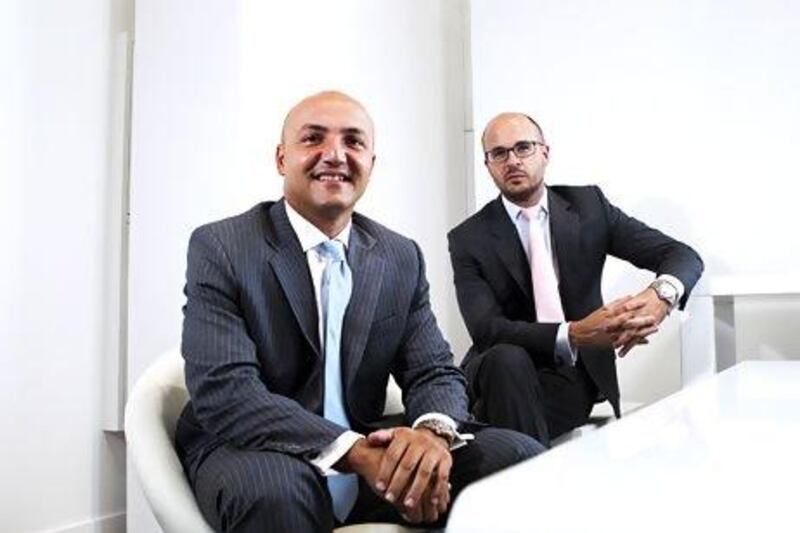It started with crowdfunding, a concept that last year involved masses of donors using online platforms to pledge US$2.7 billion - a figure expected to grow to $5.1bn in 2013.
Now there is crowdinvesting - or equity crowdfunding - which allows supporters to invest in projects in exchange for equity.
This month, Chris Thomas and Sam Quawasmi, two Dubai-based former investment bankers turned entrepreneurs, brought this model to the Middle East with Eureeca.
The project, 18 months in the making, has garnered the backing of Nasser Saidi, a former Lebanese economy minister and central bank governor and, until last year, chief economist of the Dubai International Financial Centre. He came aboard as Eureeca's deputy chairman because he believes the idea is needed to boost job creation in the Middle East.
Acording to Mr Thomas, 80 million new roles are needed by 2020 just to keep the employment rate at the current level. "These jobs will have to be created in the private sector," Mr Saidi says. "We need to focus on small and medium enterprises. These count for about 60-65 per cent of all employment."
However, SMEs struggle to get the funding they need to grow and compete. In fact, only 8 per cent of regional bank loans are to SMEs; in the UAE that drops to 4 per cent. It is also costly for companies to raise money by selling shares publicly. In the US, it costs $4.5 million for companies worth between $1m and $50m to list on an exchange. It costs $1m a year to meet the requirements needed to remain listed.
"There is big financing gap," Mr Saidi says. "We hope Eureeca will be part of the answer for SMEs in the Arab world."
This is how it works:
To apply, business owners must first send Eureeca their business plan and financial forecast. They also set out their funding goal - the amount of money needed to get the business to its next milestone. A restaurant, for example, might require the cash to open a new branch.
Team Eureeca will do background checks to make sure the enterprise is bona fide - something they aim to complete within a month of receiving the application. If satisfied the business is legitimate, the funding proposal goes online and the company has 90 days to reach its goal.
Investors then wire money to Eureeca. If the funding target is met, the money then goes to the business. If not, the money is returned to investors. The minimum investment per individual is $100 and the business owner decides on the equity amount investors will receive.
During those 90 days, potential investors can pose questions directly to the business owner via the site and have a discussion among themselves about the merits or drawbacks of the enterprise.
"The due diligence is done by the crowd," Mr Thomas says. "Anyone can pose a question, ask for background [information]. All this is available online. It's a transparent, democratic, equitable process. The safeguards available through crowdinvesting are much stronger than those available otherwise."
Still, while regulators in some European countries have taken steps to set out clear guidelines about investing in this area, and while the US is currently engaged in doing so, experts are concerned that investors are not sufficiently clued up about the risks and rewards of putting money into this type of asset class, which is typically high risk/low return.
On the other hand, one bonus of crowdinvesting is that, using social media, investors become brand ambassadors. The fund-raising process becomes a marketing tool.
Eureeca launched with two companies: The Outlet, a designer discount store, and Dgrade, a company that makes clothes using fabrics made from recycled bottles. Many others will be added in coming months. The team is expecting enterprises at different levels of preparedness but has supplied tips on the site on how to make a good pitch. They also hope that other organisations like Dubai SME100, the Khalifa Fund and incubators across the Arab world will help the businesses prepare themselves.
"We hope this will fill part of the financial gap," Mr Saidi says. "It's not an answer to everything by any means. But we are hoping it will give hope to our young entrepreneurs."
Mr Thomas agrees.
"If we get the process right, it will have great job creation value."





